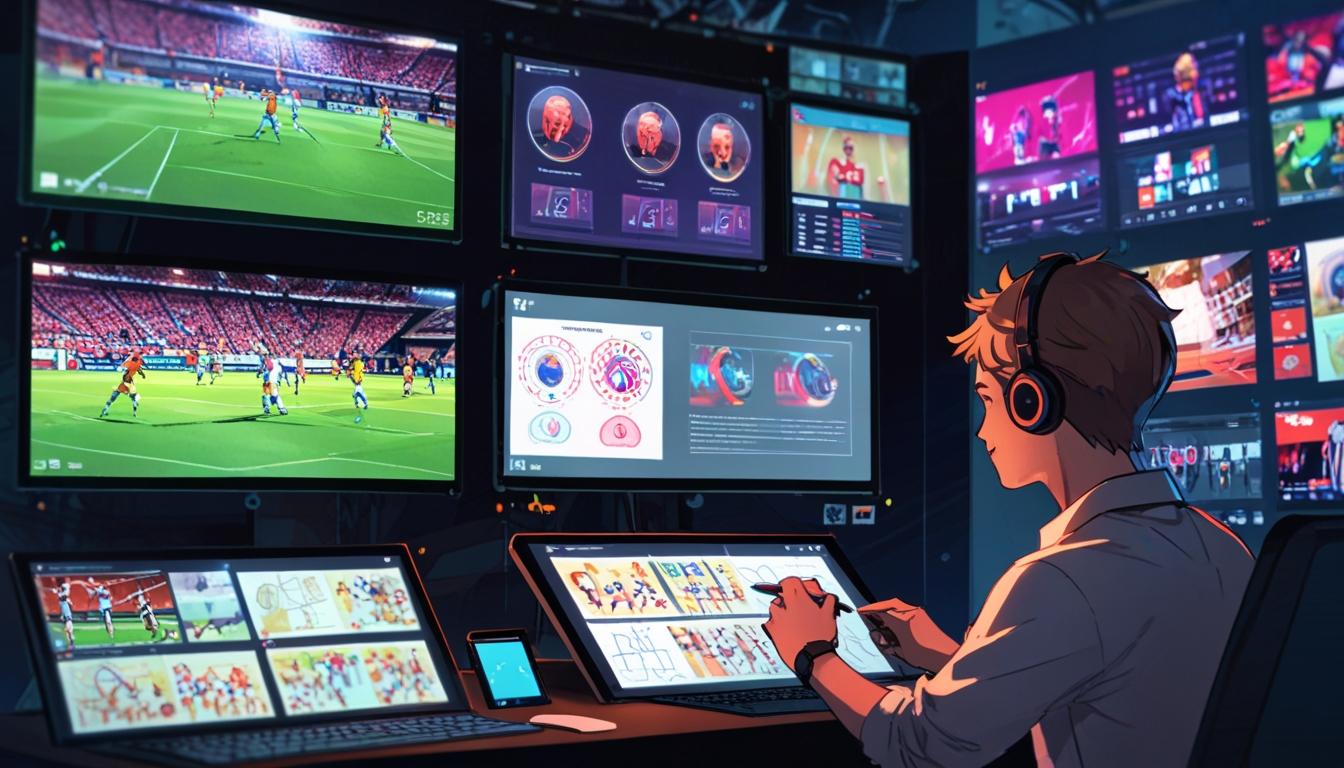In the dynamic arena of sports marketing, the emergence of artificial intelligence is reshaping how teams connect with fans and manage vast quantities of content. Traditionally, sports marketing relied heavily on evocative visuals—capturing on-field triumphs or the raw emotions of fans. However, with the rise of digital consumption, audiences now anticipate immediate, tailored content across various platforms, from stadium screens to social media feeds. As expectations evolve, the role of AI becomes increasingly pivotal.
One of the foremost challenges faced by sports organisations is the sheer volume of content generated during a single game, encompassing thousands of images and hours of video footage. Beyond traditional broadcasters, teams, leagues, and players are all eager to share highlights, creating a frantic need to manage and disseminate this content quickly. AI is emerging as a solution, not as a means to replace human creativity, but to enhance the capabilities of creative teams by streamlining workflows and accelerating the content lifecycle from capture to distribution.
The automation of tasks such as metadata tagging and content formatting exemplifies how AI significantly enhances operational efficiency. Through advanced computer vision models, AI can identify players, actions, and even emotional states, while natural language processing can dissect commentary to determine pivotal moments in a match. This allows for instant creation of highlights that can be disseminated almost immediately, aligning perfectly with digital audiences' expectations.
Moreover, AI's capacity for intelligent analysis delivers deeper insights into audience preferences. By scrutinising fan behaviour across various platforms, AI identifies which types of content resonate with different demographics. This insight empowers marketing teams to tailor their content strategies, moving beyond mere speculation to data-driven decisions. Predictive analytics further enhance this capability, allowing teams to anticipate what content will likely engage specific fan segments based on historical interaction patterns.
As AI technology advances, we see the potential for real-time content generation transforming fan experiences. From generating infographics with game statistics to creating personalised graphics during live matches, the capacity for deeper engagement grows exponentially. Such innovations promise to not only cater to existing fans but to attract new audiences by offering an enriched viewing experience that aligns with modern consumption habits.
Efficient asset management emerges as another critical consideration in this AI-driven landscape. Traditional digital asset management systems are being redefined through AI integration, which enhances their functionality by allowing for smart tagging and rapid retrieval of visual assets based on specific criteria. This capability leads to faster and more impactful content delivery—a crucial advantage in an age where capturing the moment can define brand relevance and fan loyalty.
The increasing trend of user-generated content poses another engaging avenue for teams. AI plays a role in managing this influx, assessing content for brand safety and enhancing the overall narrative crafted by both organizations and fans. By integrating authentic community contributions, sports organisations can foster stronger connections with their audiences, reflecting a more inclusive and engaging brand ethos.
Despite these advancements, the implementation of AI in sports marketing is not without challenges. Issues such as technical barriers, resource limitations, and concerns over data privacy remain prominent. Nevertheless, companies such as Machina Sports are paving the way with generative AI solutions specifically designed for the sports industry, showcasing how adaptive approaches can overcome these hurdles.
The AI revolution in sports marketing is garnering attention for its potential to radically transform fan engagement and the storytelling capabilities of sports organisations. Supporting human creativity through automation allows creatives to focus on strategic thinking and innovative content creation. With AI as a cornerstone, the sports marketing landscape is not merely evolving; it is undergoing a radical transformation, aimed at capturing the passion and energy that define the sporting experience.
As technologies advance and audiences demand richer interactions, AI could play an instrumental role in guiding the future of sports marketing, ensuring that teams not only keep pace with but surpass the expectations of their ever-evolving fan bases.
Reference Map:
- Paragraphs 1, 2, 3, 4, 5, 6, 7
- Paragraph 3, 5
- Paragraph 4, 5
- Paragraph 4, 6
- Paragraph 3, 7
- Paragraphs 1, 4
- Paragraph 6
Source: Noah Wire Services
